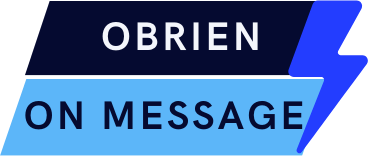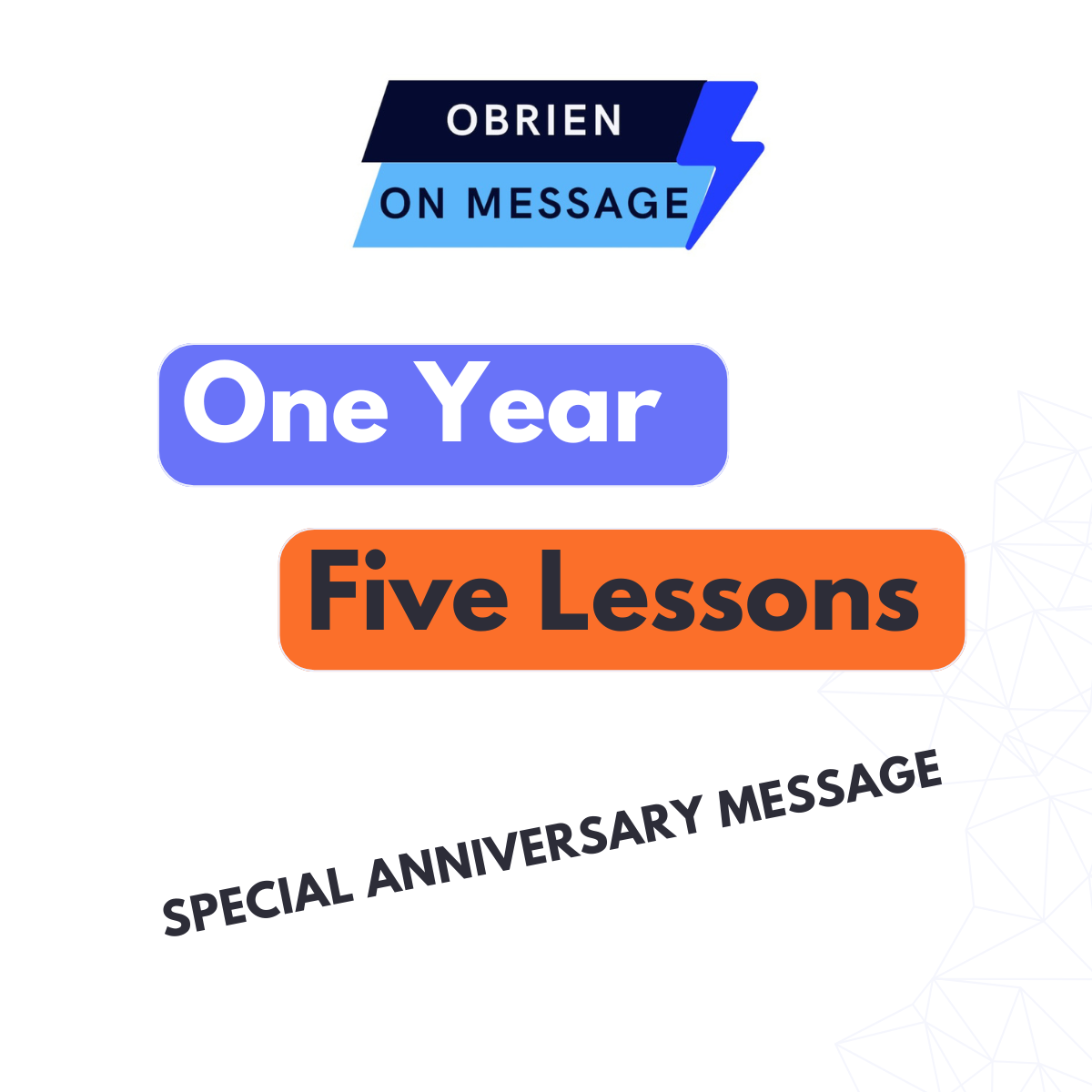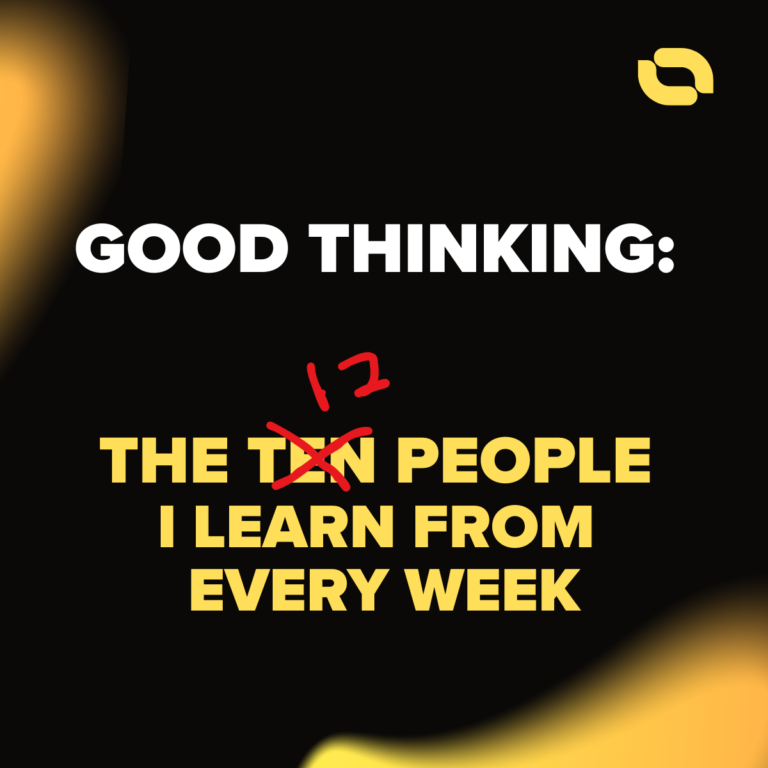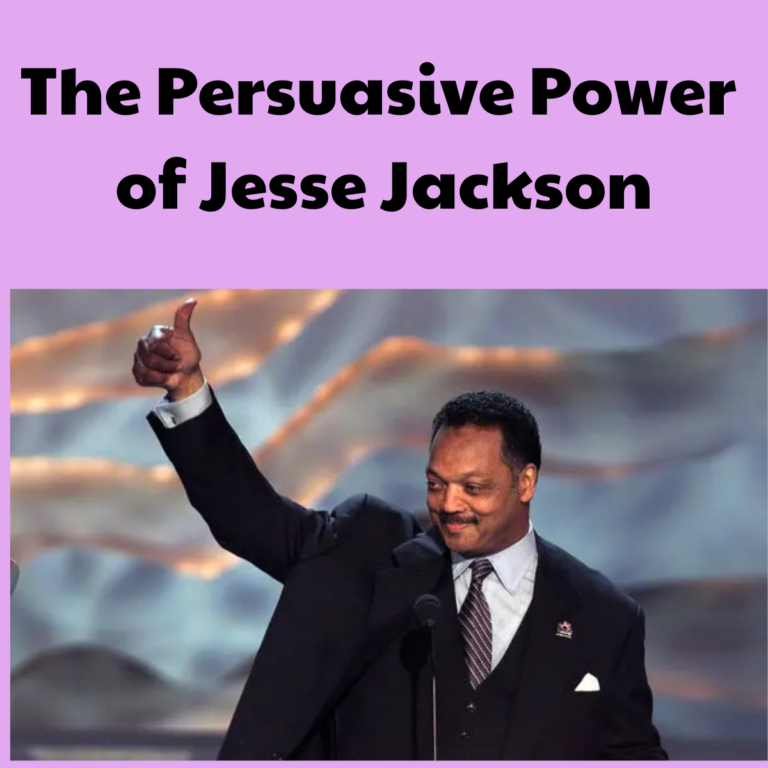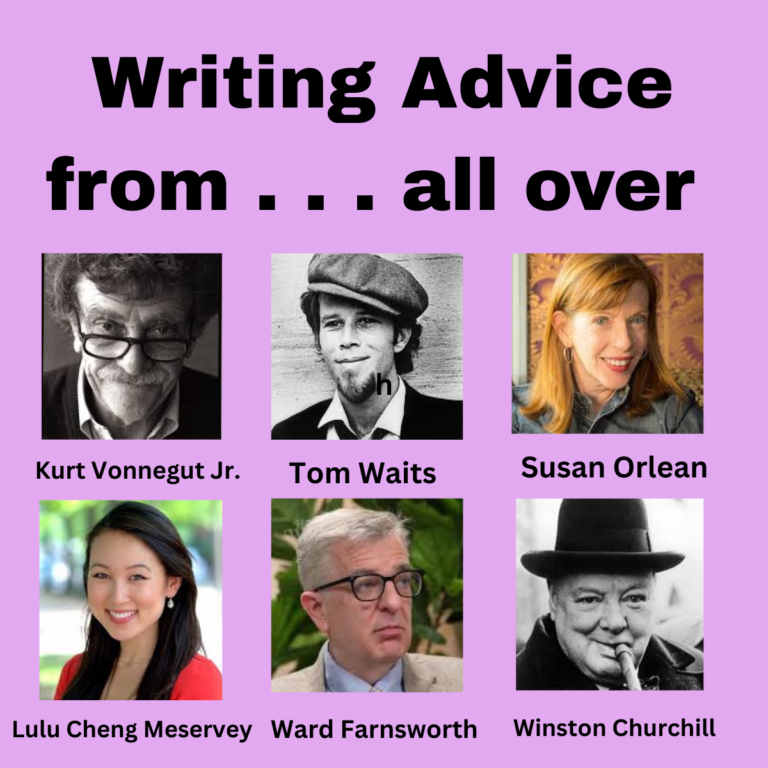A year ago this week, with a huge presidential election approaching and many of the causes I care about struggling, I launched OBrien On Message and its first initiative — the Monday On Message memo.
After four decades helping major nonprofits use powerful messaging to raise billions of dollars, I decided my best contribution was to help the broader community of great causes message more persuasively.
Today I’m taking stock, sharing what I’ve learned, and previewing what’s next. But first let me thank you personally for being an engaged subscriber to the Monday memo. I really appreciate it.

When I launched my new project, I was guided by some smart advice from Seth Godin. Rather than try to build a huge audience he suggests recognizing “that quality, magic and satisfaction can lie in the other direction. Not because we can’t get bigger, but because we’d rather be better.”
And rather than counting on a big marketing budget, Godin advises finding a small, viable audience and trying “to create so much delight and connection that they choose to spread the word to like-minded peers.”
That’s what I set out to do – and it’s working. The audience for my free weekly memo has more than tripled in a year – all driven by word of mouth, not a dime spent on marketing.
But more critical than the size is the quality of the audience I’ve been able to build – leaders from top communications and fundraising firms, comms and creative directors from a host of nonprofits, top copywriters, leading Democratic messaging experts, even a cohort of progressive organizers and activists across Europe.

When I first started writing posts about messaging, they shared broad, timeless advice about communicating more persuasively. But I soon found myself drawn to placing my messaging advice in the context of what’s happening all around us.
Together, subscribers like you joined me in walking through and learning from messaging hits and misses in the presidential campaign. We explored the challenges apolitical charities are facing as Trump and Musk disrupt their work, weighed in on the Democratic search for a messaging strategy to confront Trump 2.0, and more.
I still address copywriting tips and overall messaging dynamics. But leaning into persuasive messaging in context makes the Monday missives both more interesting and more immediately actionable. At least that’s my goal.
Every time you communicate to your audiences, locating that message in a compelling, time-sensitive context should be your goal as well.

A frequent theme in my messaging advice is to lead with emotion and back it up with facts. Even if we might wish it were otherwise, trying to persuade with facts and figures and weaving in some emotion later on isn’t a recipe for success.
But this past year, some corollaries to that overall rule have come into focus. It’s not just about leading with emotion. It’s about choosing the right emotion to lead with. One powerful example: As Democrats hopefully learned in 2024, leading with fear can immobilize rather than motivate people.
Especially in these fraught times, it’s essential for nonprofits to lead with an emotion that both matches the moment and fits the voice and identity of your organization.

This is one I didn’t see coming. I imagined O’Brien On Message would have a domestic focus. Then I met my new friends from ECDA (the European Center for Digital Action). They’re an amazing group working to advance the digital skills of progressive groups and political parties all across Europe.
It started with a couple of DC sessions where I talked about the messaging dynamics in the U.S. presidential race. By the end of the year, I was writing a post-election article for ECDA’s new Digital Progressive magazine and leading a messaging workshop in Dublin at the annual meeting of the European Greens, a gathering of progressive parties from all across Europe.
Bottom line: US progressives and European ones have so much to learn from one another and furthering that dialogue is one of my top 2025 priorities.

With the causes we care about having their back to the wall, it’s more important than ever that we communicate as persuasively as possible.
That’s true whether you’re working to protect animal welfare, end Alzheimer’s disease, defend science, push back against the Trump/Musk assault or advance another worthy cause. As the tariff travesty is bringing home, none of us can escape the impact of what’s happening in our country and across the globe. With our audiences wavering between seething outrage and disheartening concerns, we have to keep asking ourselves what more we can do.
Here are three steps I am taking beyond the Monday memos in hopes they can contribute in some small way:
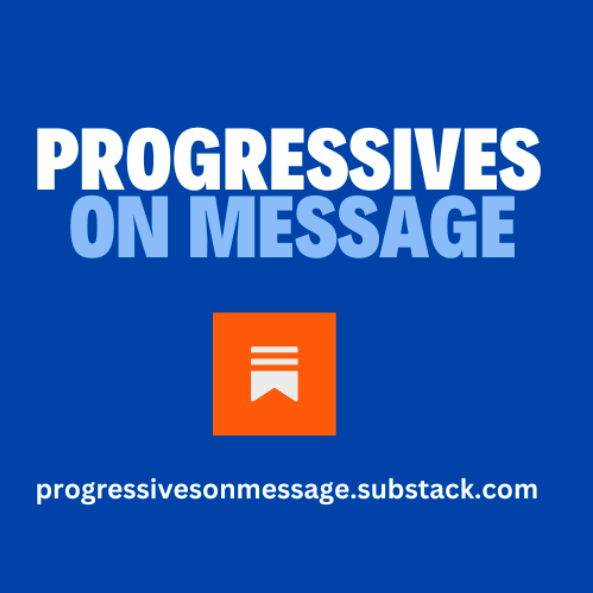
Just a few weeks ago, I launched Progressives On Message on Substack. I believe that, if we want to generate a robust response to the Trump 2.0 assault, progressives will have to lead the way. The new Substack is a forum for discussing key strategies and messaging priorities for the progressive movement. It’s content that extends beyond the purpose and mission of the Monday memo.
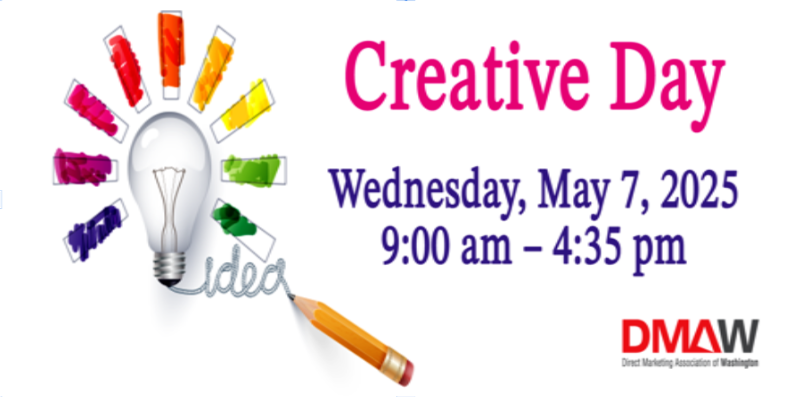
Public speaking is one way I’m working to reach more people with my persuasive messaging content. On May 7th I will be kicking off the 2025 DMAW Creative Day with a “You’re not ready to write until . . .” presentation discussing eight critical steps to building the firm messaging foundation essential to truly persuasive individual efforts. (Click on the image to register.)
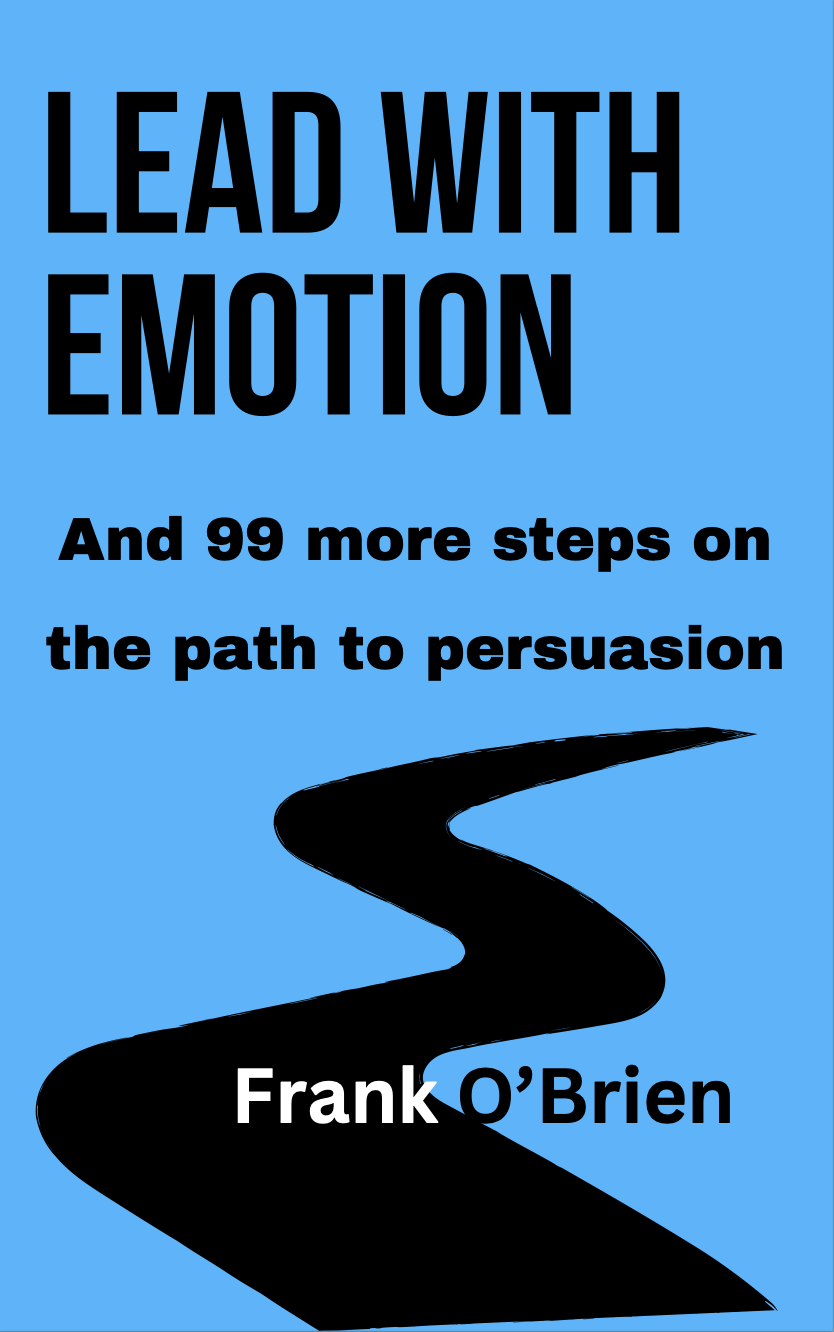
This summer, I will be publishing my first book, Lead With Emotion. It’s a collection of 100 easy-to-apply tips and guidelines to help make nonprofit messaging and copywriting more persuasive. My intent: to extend the reach of the principles and insights conveyed in the Monday memos to an even broader audience. And to give nonprofit practitioners an always-at-hand messaging guidebook.

Thanks again for joining me on the journey towards more persuasive nonprofit messaging. I’m looking forward to us working together as we confront the unique communications challenges of this extraordinary period in our country’s history.
If you find my Monday memos valuable, help me celebrate the first anniversary by recommending the free memo to a few people in your network. That would mean a lot to me.
Frank
